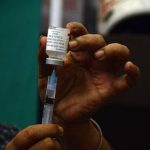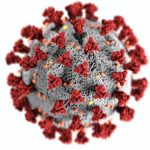Heart Failure is a life-threatening syndrome affecting more than 64 million people globally…reports Asian Lite News
Patients with heart failure who are vaccinated against Covid-19 are 82 per cent more likely to live longer than those who are not vaccinated, a new study said on Saturday.
The study presented at Heart Failure 2024, a scientific congress of the European Society of Cardiology (ESC), used the Korean National Health Insurance Service database to obtain information on vaccinations and clinical outcomes.
Participants who received two or more doses of the Covid-19 vaccine were described as “vaccinated”, and those who were not vaccinated or had received just one dose were defined as “unvaccinated”.
Heart Failure is a life-threatening syndrome affecting more than 64 million people globally.
“In this large study of patients with heart failure, Covid-19 vaccination was associated with a lower likelihood of contracting the infection, being admitted to hospital because of heart failure, or dying from any cause during a six-month period compared with remaining unvaccinated,” said study author Dr Kyeong-Hyeon Chun of the National Health Insurance Service Ilsan Hospital, Republic of Korea.
The study comprised 651,127 heart failure patients over the age of 18. The average age was 69.5 years, and 50 per cent were female. Of the whole study population, 538,434 (83 per cent) were classified as vaccinated, and 112,693 (17 per cent) as unvaccinated.
The researchers found that vaccination was associated with an 82 per cent lower risk of all-cause mortality, 47 per cent lower risk of hospitalisation for heart failure, and 13 per cent reduced risk of Covid-19 infection compared with no vaccination.
Regarding cardiovascular complications, vaccination was associated with significantly lower risks of stroke, heart attack, myocarditis/pericarditis, and venous thromboembolism compared to no vaccination, the researchers mentioned.
“The study provides strong evidence to support vaccination in patients with heart failure. However, this evidence may not be applicable to all patients with heart failure, and the risks of vaccination should be considered in patients with unstable conditions,” Chun said.














